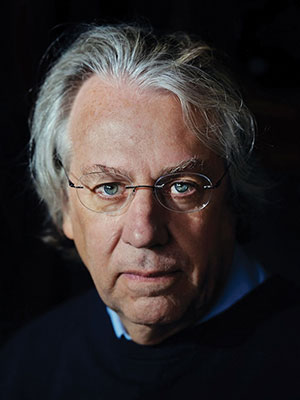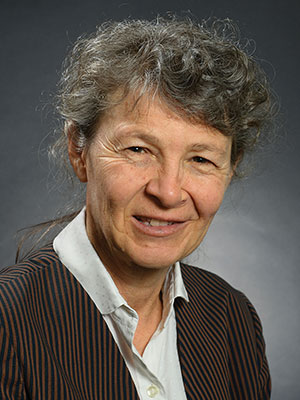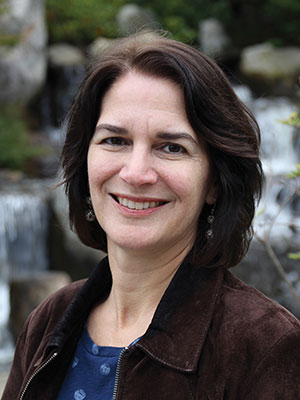2023 Lilly Fellows Program National Conference

"Contemplating Integral Ecology for the Common Good"
What is integral ecology, and how can it be oriented to the common good? How can faith-based
liberal arts institutions of higher education train their students to be attentive
to both natural and human ecology so as to contemplate and develop effective solutions
to questions of ecology and sustainability? Hosted by Aquinas College in Grand Rapids,
Michigan, a liberal arts college in the Catholic, Dominican tradition, this conference
will explore these questions from multiple perspectives, engaging the natural sciences,
philosophy/theology, and the humanities/arts.
Please register using this link: https://www.eventbrite.com/e/2023-lilly-fellows-program-national-conference-tickets-627238676767
Preliminary Schedule
FRIDAY, OCTOBER 20, 2023
- Afternoon - Registration, First-timers Workshop, Tours, Meet & Greet Reception, Plenary #1, Vespers
- Evening - Cocktail Hour, Dinner, Awards
SATURDAY, OCTOBER 21, 2023
- Morning - Breakfast, Plenary #2, Small Group Discussions
- Afternoon - Lunch, Plenary #3, Small Group Discussions, Mass
- Evening - Night in Grand Rapids
SUNDAY, OCTOBER 22, 2023
- Morning - Breakfast, Closing Plenary
Speakers
 Kerry Andrew Emanuel, Ph.D.
Kerry Andrew Emanuel, Ph.D.
Professor Emeritus, Department of Meteorology
Massachusetts Institute of Technology, Cambridge, MA
Title: “Climate, Energy, Poverty and Population: Four Interwoven Challenges of Our Times”
Abstract: Human civilization became finely adapted to the remarkably stable climate we have enjoyed since the dawn of civilization, making us highly susceptible to relatively small changes in climate. After reviewing the current scientific understanding of climate change and the risks it poses to human society, I will focus on the relationships among energy, the economy and population, arguing that large increases in per capita energy consumption in developing nations are probably necessary for the alleviation of poverty and associated population growth. I will conclude on a note of optimism about rapidly developing technological options for mitigating climate change.
Bio: Dr. Kerry Emanuel is the Cecil and Ida Green emeritus professor of atmospheric science at the Massachusetts Institute of Technology, where he was on the faculty from 1981 to 2022. Before that he was on the faculty of UCLA from 1978 to 1981.
Emanuel’s initial focus was on the dynamics of rain and snow banding in winter storms, but his interests gradually migrated to the meteorology of the tropics and to climate change. His specialty is hurricane physics and he was the first to investigate how long-term climate change might affect hurricane activity, an issue that continues to occupy him today. His interests also include cumulus convection, and advanced methods of sampling the atmosphere in aid of numerical weather prediction.
Emanuel is the author or co-author of over 200 peer-reviewed scientific papers, and three books, including Divine Wind: The History and Science of Hurricanes, published by Oxford University Press and aimed at a general audience, and What We Know about Climate Change, published by the MIT Press and now entering its third edition. He was a co-founder and co-director of MIT’s Lorenz Center, a climate think tank devoted to basic, curiosity-driven climate research.
 Marie I. George, Ph.D.
Marie I. George, Ph.D.
Professor of Philosophy
St. John's University, Queens, NY
Title: “Augustine and Aquinas on Integral Ecology”
Abstract: Integral ecology consists in knowledge of the obligations that humans have to ensure the right ordering of creatures to God, both themselves and other non-rational creatures. This right order is the inherent or intrinsic common good of the universe. God is the absolute common good, to which the intrinsic common good is to be ordered. Integral ecology thus concerns our obligations to ensure the intrinsic common good of the universe and order it to God. My purpose here is to investigate the right ordering of creatures to God by considering the teachings of Augustine and Aquinas on the subject.
Bio: Marie I. George holds a Ph.D. in philosophy from the University of Laval (1987), and an M.A. in biology from Queens College, NY (2002), and an M.A. in Pastoral Theology from St. Joseph's College, ME (2008). In addition, she has two bachelor’s degrees, one in liberal arts from Thomas Aquinas College (1979) and another in biology from Queens College (2000). She is a Professor of Philosophy at St. John’s University, NY where she has taught for over thirty years, including courses on the philosophy of biology, philosophy of science and religion, bioethics, and environmental ethics. She has received several awards from the John Templeton foundation for her work in science and religion, and in 2007 was co-recipient of a grant from the Center for Theology and the Natural Sciences (CTNS) for an interdisciplinary project entitled: “The Evolution of Sympathy and Morality.” She is the author of two books: Christianity and Extraterrestrials? (2005) and A Catholic Perspective and Stewardship of Creation: What Catholics should know about Church teaching on the environment (2009) and has also authored a number of peer-reviewed articles on environmentalism.
 Debra Rienstra
Debra Rienstra
Professor of English
Calvin College, Grand Rapids, MI
Title: “Refugia Faith: A Way Forward”
Abstract: Refugia is a biological term describing places of relative shelter where life endures in times of crisis, places where capacities rebuild and begin to renew. Taking the refugia phenomenon as our model, we can respond faithfully to the climate crisis by finding and nurturing refugia in the earth, but also in our human cultural systems and our spiritual lives. Combining the wisdom of the earth with key treasures from the Christian tradition can equip us to become healers, a “people of refugia.”
Bio: Debra Rienstra is professor of English at Calvin University, where she has taught since 1996, specializing in early British literature and creative writing. Her scholarly research focuses on early modern religious poetry, particularly that of George Herbert and Mary Sidney. Besides scholarly essays and chapters, she has published four trade books—on motherhood, spirituality, worship, and ecotheology/climate change—as well as numerous essays and poems. Her most recent book is Refugia Faith: Seeking Hidden Shelters, Ordinary Wonders, and the Healing of the Earth (Fortress 2022), a book that combines theology, nature writing, and biological principles to consider how Christians must adapt our faith and practice for a climate-altered planet. Rienstra is also the host of the Refugia Podcast and writes twice monthly for The Reformed Journal blog, writing about spirituality, pop culture, the church, the arts, higher ed, and more. Rienstra holds a BA in English from the University of Michigan and a Ph.D. in Literature in English from Rutgers University.
About Lilly Fellows Program
The Lilly Fellows Program seeks to strengthen the quality and shape the character of church-related institutions of higher learning in the twenty-first century.
The Lilly Fellows Program consists of three distinct yet integrated initiatives: National Network, Postdoctoral Fellows Program, and Graduate Fellows Program.